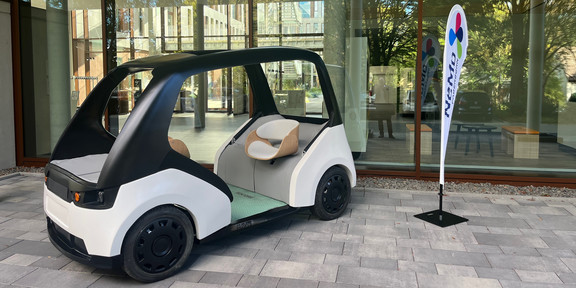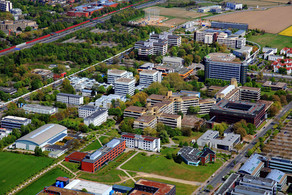The social dimension of new mobility
- TU News

NeMo.bil pursues a systemic approach: it aims to expand local public transport and enable individual public mobility that is as convenient as using your own car. The concept: automated smaller vehicles, known as cabs, which cover the first and last few miles, join together on longer routes to form a convoy that is pulled by a larger automated vehicle, known as a Pro. The electrified Cabs are particularly lightweight and offer space for up to four people. The Pros serve as mobile charging stations and enable longer ranges and speeds in the convoy.
"By combining both vehicle types, the overall system can achieve a previously unattainable level of energy efficiency," emphasizes Prof. Johannes Weyer, who holds a senior professorship for Sustainable Mobility at TU Dortmund University. His team brings a social science perspective to the project, in which a total of 20 partners from industry and science are working together. The TU scientists will focus on people's mobility behavior and investigate their willingness to use innovative mobility options. To this end, they will design an agent-based model of the Paderborn region and test the acceptance of the new means of transportation. They will conduct experiments with the SimCo traffic simulator, which was developed at TU Dortmund University. The new model will depict real people and their everyday mobility, in particular the choice between car, public transport, bike - and in the future - NeMo.bil.
"Simulation experiments can be used to investigate whether people will use the new service and how it should be designed so that it appeals to as many people as possible before it is used in practice," says Prof. Weyer. Initial considerations are already underway to implement NeMo.bil in the eastern Ruhr region following successful implementation in pilot applications in the Paderborn area.
Contact for queries:




